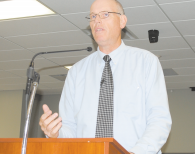The Marshalltown, IA City Council voted unanimously in favor of a resolution supporting the local Not In Our Town group’s prevention work around bullying and intolerance, a key commitment in the group’s efforts to become a Not In Our Town Gold Star City.
Not In Our Town
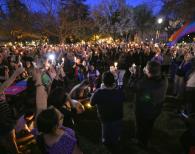
Dan Bruun is a documentary filmmaker from Davis, CA. He has produced films in New York, Jamaica, and England, but is currently working on a film project in his hometown about a hate crime that occurred last year, called Davisville 2013. Watch the trailer here.
On March 10, 2013, a 19-year-old man brutally assaulted Mikey Partida, a beloved member of the community of Davis, CA. The attacker used many gay slurs before, during, and after the assault, which left the victim with several skull fractures, bleeding inside the brain, and both eyes swollen shut.
Pictured here is Mikey Partdia (left) and Dan Bruun (right).
This disturbing event created a rush of energy within the liberal Davis community. People immediately began sharing the news on social media and feelings of shock, anger, and sadness spread throughout our small college town.
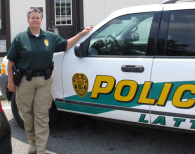
Swimming Beyond Racism
A dedicated swimmer is back in the pool after being the victim of a hate crime five months ago, according to ABC 7 News.
Omid, a 15-year-old middle school student from Chicago, heard the words “Hey Persian,” before he was violently attacked by one of his peers. The attacker broke Omid’s collarbone on both sides.
Omid worried that he would ever be able to swim again. But, as he recovered, he received a visit from Olympic swimmer B.J. Johnson. The visit gave Omid the confidence to continue doing what he loved.
Along with Johnson, community members came together to support his family.
“We have all this outpouring of support...that’s what’s really helped,” said Omid’s mother, Melissa Babakhani. “We’re just going to focus on the good.”
Although he still feels physical and emotional pain from the incident, Omid is swimming once again. “It affected me, but I am strong enough to get over it,” he said.
Read the full story here.
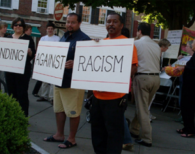
The Not In Our Town National Leadership Gathering in June brought together leaders from 46 cities in 21 states. As these leaders returned to their hometowns, they continued the conversation about why preventing extremism, hatred and bullying matters.
Here we feature four great news articles and opinion pieces that feature our leaders and their presence at the gathering.
Alternet, “Why do people hate? And Is There a Way to Counteract It?”
A recent New York Times op-ed explored a white supremacist website and the demographics of its members. Author Seth Stephens-Davidowitz concluded with a question, “Why do some people feel this way? And what is to be done about it? I have pored over data of an unprecedented breadth and depth, thanks to our new digital era. And I can honestly offer the following answer: I have no idea.”
In response, Frank Joyce’s Alternet op-ed poses Not In Our Town’s work as part of the solution.
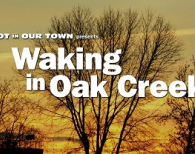
The India Community Center (ICC) is hosting a free screening of Waking In Oak Creek on Thursday, July 31 at 6 p.m. in Milpitas, CA.
About Waking in Oak Creek:
Waking In Oak Creek (33:00) profiles a suburban town rocked by hate after six worshippers at a Sikh Temple are killed by a white supremacist. In the year following the attack, the film highlights a community and law enforcement working together to overcome tragedy, stand up to hate, and create a safe town for all.
The film was produced in conjunction with the U.S. Department of Justice COPS Office as part of the Not In Our Town: Working Together for Safe, Inclusive Communities Initiative.
Watch the trailer below.
Oak Creek Excerpt from Not In Our Town on Vimeo.

Not In Our Town Executive Producer Patrice O'Neill appeared on NewsRadio 104.9 FM's Gulf Coast Morning and talked about Not In Our Town's vision as well as some upcoming events including the 2014 National Leadership Gathering and the Gold Star Cities project.
Gulf Coast Morning is broadcast out of Biloxi, Missouri. Hosts Mike and Steve discussed Not In Our Town's history, strategies for fighting hate, and the importance of uniting communties to start their own Not In Our Town campaigns.
Listen to the full interview with Patrice O'Neill below!
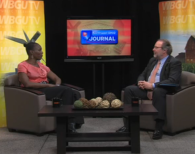
Not In Our Town Community Engagement Director Michelle Gahee Kloss appeared on WBGTV's North West Ohio Journal and talked to host Steve Kendall about the great work that Not In Our Town Bowling Green is doing.
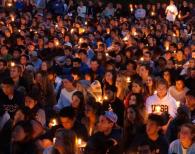
“This is our moment for healing. We all stand here, we all sit here as a school, as a community.”
UCSB students gathered for a candlelight vigil on Saturday, May 24 2014
Photo Credit: University of California Santa Barbara
The Isla Vista community in Santa Barbara has come together after the shooting rampage last week that took the lives of six students and injured 13 other people. Memorial shrines with flowers, messages, candles and photos were placed at the scenes where the violence was perpetrated, according to UCSB’s student newspaper, The Bottom Line. A candlelight vigil was held at the school on Saturday, May 24.
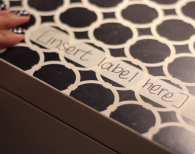
Addressing & Eliminating Labels
“Do not define me by my clothes or the color of my skin”.
These are the words that begin a powerful video titled, Labels. The video, created by Maneetpaul Singh, is a creative project featuring people of all ages, genders, and backgrounds, wearing a stereotype or label written on a piece of tape, covering their mouths. The video featured labels like “know it all,” “shy,” “prep,” and “terrorist,” among others.
The opening and closing lines are from the poem that inspired Singh to embark on this project, written by Singh’s friend Bani Ahuja. The video ends with a woman, burning a piece of tape with the words “insert label here,” and the final words of the poem are narrated:
So take this label that I wear,
Let it burn into the air,
I am not the words that you assign,
There’s so much more that meets the eye.
Watch Maneetpaul Singh's video here.
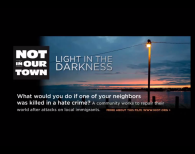
Not In Our Town was honored to participate in an extremely informative webinar addressing the challenges of prosecuting hate crimes and the important interplay between hate crime victims, law enforcement, and the greater community.
